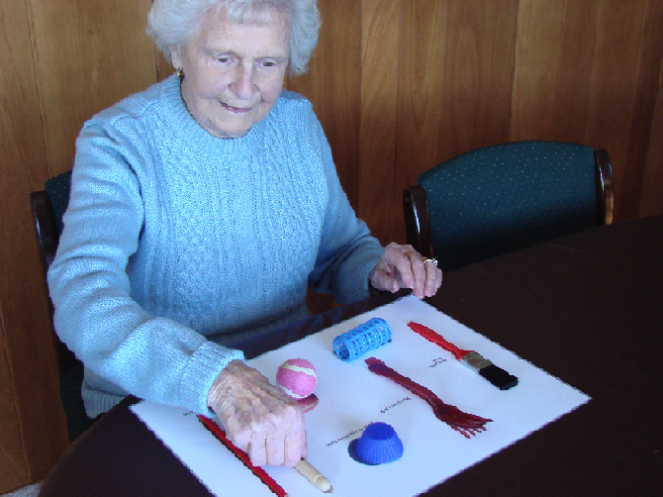
Boredom is one of greatest issues we face in dementia care. In fact, boredom contributes to many of the “challenging” or “difficult” behaviours associated with dementia (often referred to as responsive behaviours). We need to understand that all behaviour has meaning and recognize that many of the behaviours we see in dementia can be addressed when we find things for people to do that are connected to needs, interests, skills and abilities. Let’s ban the boredom and create a world where people living with dementia can truly say, “I’m engaged!”
There are a number of things to consider as you create and develop your list of activities.
What is the person able to do? What would he/she like to do?
Along with the diagnosis of dementia there often comes an expectation that abilities are diminished. The focus shifts to what this person can no longer do – rather than focusing on the remaining abilities and what the person is still able to do. The unfortunate and unnecessary expense of this common misconception is not only endless days of boredom and loneliness, but also the excess disability that comes from disuse. People with dementia do not need to sacrifice quality of life or the enjoyment that comes from doing the things that once gave them pleasure. Activities merely need to be adapted to the individual’s current level of ability. Break down the task into steps or find an easier version of the activity that would provide the same level of enjoyment. Don’t ever hesitate to explore new ideas that may add hours of enjoyment to their endless days.
The goal is to expose abilities – expose the potential. Find opportunities to: engage in the creative arts (including music, painting, sculpting and colouring); stimulate the senses (e.g. – give a hand or foot massage and create activities that involve bright colours); and don’t forget to address the needs of the whole person (including the exercise, good nutrition and the need to be connected to others). Activities, such as the ones presented abve, are an excellent way to
fill up the day, engage the brain, mobilize the body, enhance self-esteem, and, most importantly, add pleasure to each day. These activities can be done independently or in a group, thus providing opportunities for conversation and social connection. While we can’t reverse the dementia, we can keep the body, mind and soul enriched and engaged throughout the course of the journey.